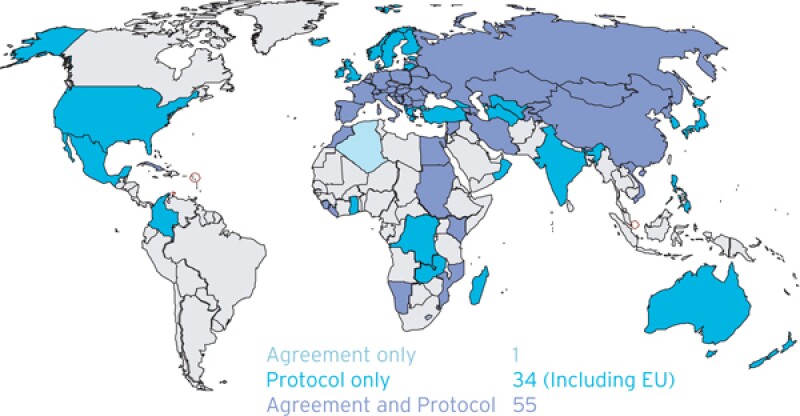India deposited its instrument of accession with WIPO on April 8. The Trade Marks (Amendments) Act 2010 has been passed, and the Trade Marks (Amendment) Rules 2013 have been notified.
Following the recent accessions of Colombia, Mexico and New Zealand, the Madrid System now has 90 member states (89 are members of the Madrid Protocol and just one—Algeria—is a member of the Madrid Agreement only). There are also reports that more countries, notably Brazil, are updating their domestic systems with a view to joining the Protocol soon.
Chaitanya Prasad, Controller General of Patents, Designs and Trademarks & Registrar of Geographical Indications in India, told the INTA Daily News: “I think the ease of use and simplicity of the process should be of great value to applicants from India as well as foreign applicants in India.”
He added that the Indian office has taken steps to prepare for Madrid, including: setting up an International Registration wing at its branch in Mumbai; developing and testing an online system to receive International Applications; increasing bandwidth for data transfer; and recruiting and training new staff.
Prasad also said that at present India receives around 2,000 trademark applications from foreign nationals each year: “After India’s accession to the Protocol, many other foreign nationals may use this system to make trademark applications in India. Similarly many Indian entrepreneurs and India-based multinational companies are expected to use this system for protection of their trademarks abroad.”
WIPO is hosting a meeting for Madrid System users tomorrow from 11:00 am - 2:00 pm in room C146. The meeting will be introduced by Wang Binying, Deputy Director General in charge of the Brands and Designs Sector at WIPO, and will include statements from representatives of Colombia, Mexico and New Zealand.
There will also be updates on the Hague and Madrid Systems and the Madrid Goods and Services Manager, and a discussion on the better use of the Madrid System, featuring panelists from the EU, Japan, Russia and the United States.










